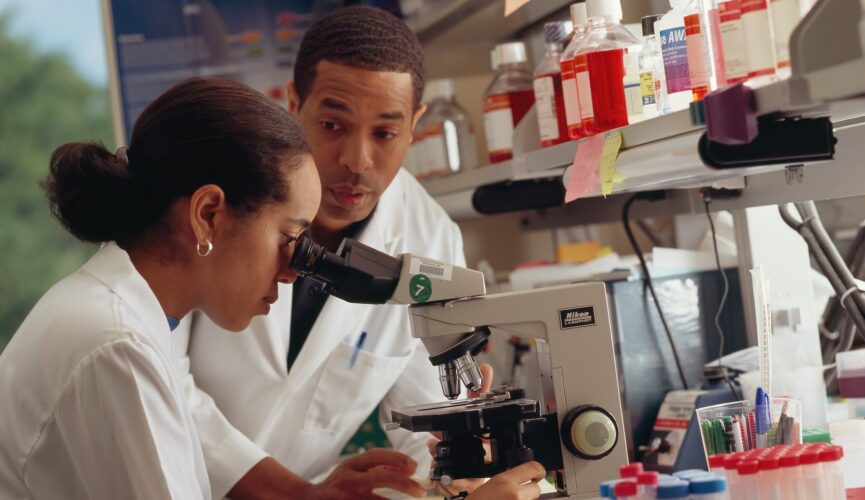With the advancement of medical technologies, the fight against diseases has taken a leap forward. From early detection to precise treatment, cutting-edge innovations are saving lives and revolutionizing healthcare. In this article, we will explore some of these remarkable medical technologies that have significantly contributed to disease prevention.
Early Disease Detection: Saving Lives One Test at a Time
Early detection plays a pivotal role in successful disease prevention. Thanks to medical technologies such as molecular diagnostics and genetic testing, diseases can be identified at their earliest stages, often before symptoms even appear.
Molecular diagnostics involves the study of individual molecules to detect specific genetic information or biomarkers linked to diseases. This allows healthcare professionals to identify diseases like cancer, infectious diseases, and genetic disorders with exceptional accuracy. By diagnosing diseases early, patients can start treatment earlier, significantly improving their chances of survival and recovery.
Genetic testing, on the other hand, examines an individual’s DNA to identify genetic variants associated with various diseases. This technology not only allows healthcare providers to determine an individual’s predisposition to certain diseases but also helps them develop personalized prevention plans. By analyzing genetic data, doctors can recommend lifestyle changes or medical interventions tailored to an individual’s unique genetic makeup, reducing the risk of developing certain diseases.
Precision Medicine: Revolutionizing Disease Treatment
Once a disease has been diagnosed, medical technologies are further improving treatment outcomes through precision medicine. Traditionally, healthcare providers relied on a one-size-fits-all approach to treatment, assuming that individuals with the same disease would respond similarly to the same treatments. However, precision medicine recognizes that every patient is unique and tailors treatment plans accordingly.
One example of precision medicine is pharmacogenomics, which analyzes a person’s genetic makeup to determine how they may respond to specific medications. By studying an individual’s genetic variations, healthcare professionals can predict drug efficacy and potential side effects. This knowledge enables doctors to choose the most suitable medication and dosage for a particular patient, improving treatment effectiveness while minimizing adverse reactions.
Another groundbreaking technology in precision medicine is targeted therapy, which involves using drugs or other substances to block specific molecules involved in the growth and spread of diseases. Unlike conventional chemotherapy that indiscriminately attacks both healthy and cancerous cells, targeted therapies can directly interfere with the action of cancer cells while sparing healthy cells. This remarkable advancement not only enhances treatment efficacy but also reduces the harmful side effects associated with traditional cancer treatments.
Wearable Medical Devices: Empowering Personal Health Management
As the saying goes, prevention is better than cure. This adage holds true in healthcare as well. Medical technologies like wearable devices are empowering individuals to take control of their health and detect potential problems before they escalate.
Wearable medical devices, such as fitness trackers and smartwatches, offer continuous monitoring of vital signs, activity levels, and sleep patterns. By collecting real-time data, these devices provide valuable insights into an individual’s overall health. In some cases, they can even identify warning signs of potential health issues.
For instance, certain wearable devices can monitor heart rate, enabling users to detect irregularities that may suggest an underlying cardiac condition. By providing early warnings, individuals can seek medical attention promptly, potentially preventing life-threatening events like heart attacks or strokes.
Moreover, wearable technology is increasingly being integrated with disease-specific apps and platforms. For example, individuals with diabetes can track their blood glucose levels using wearable devices connected to mobile applications. These apps not only display real-time readings but also analyze the data, provide personalized recommendations, and even alert users of critical values. Such technologies empower patients to actively manage their conditions, improve their quality of life, and reduce the risks associated with uncontrolled diseases.
Conclusion: A Healthy Future Awaits
Medical technologies have undoubtedly transformed the field of disease prevention. From early disease detection through molecular diagnostics and genetic testing to personalized treatments in precision medicine, and the empowerment offered by wearable medical devices, our ability to safeguard health is rapidly advancing.
As technology continues to evolve, healthcare professionals, researchers, and engineers are joining forces to develop even more lifesaving innovations. With these groundbreaking medical technologies at our disposal, we are moving towards a healthier future. So let us embrace these innovations, take charge of our health, and work together to prevent diseases and save lives.
Note: This article is for informational purposes only and should not substitute professional medical advice. If you have concerns about your health, consult a healthcare professional.
